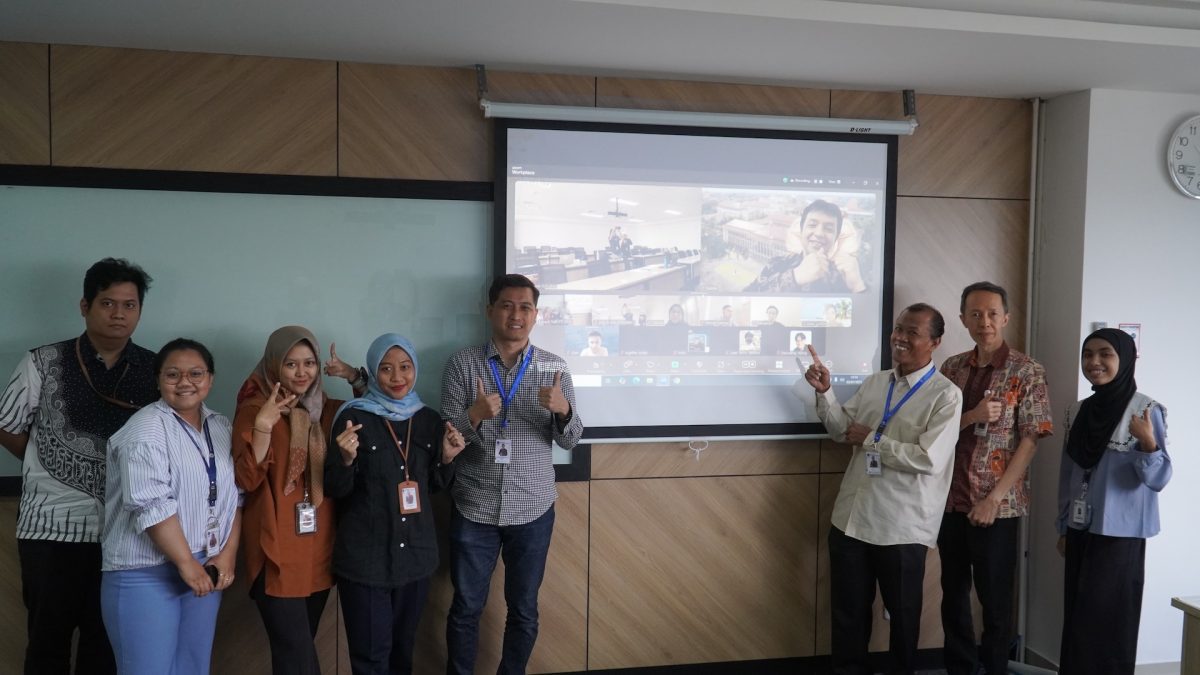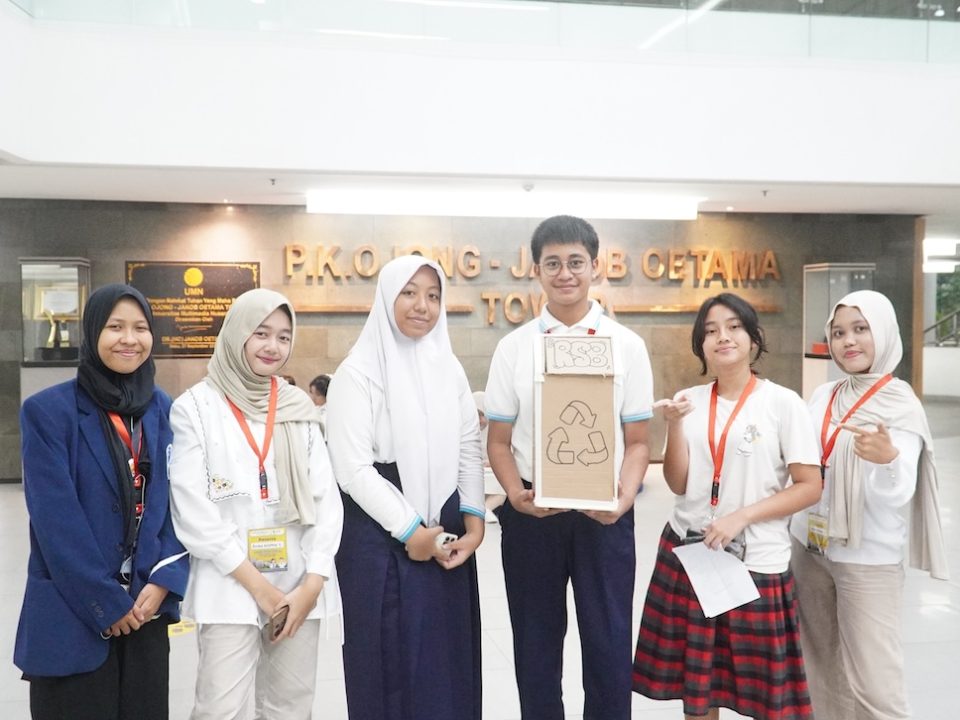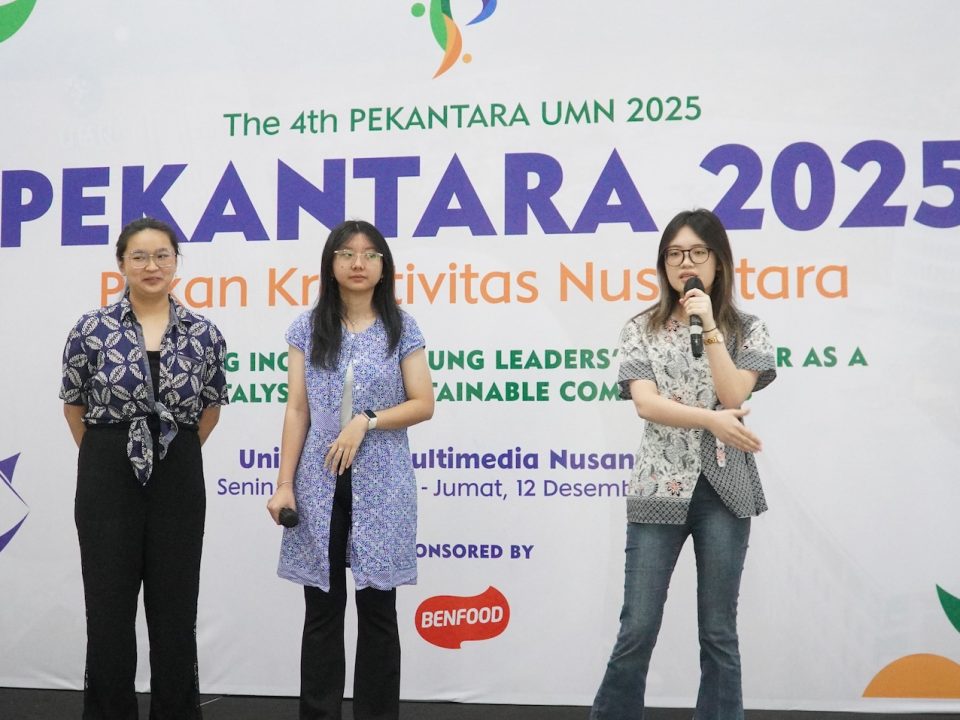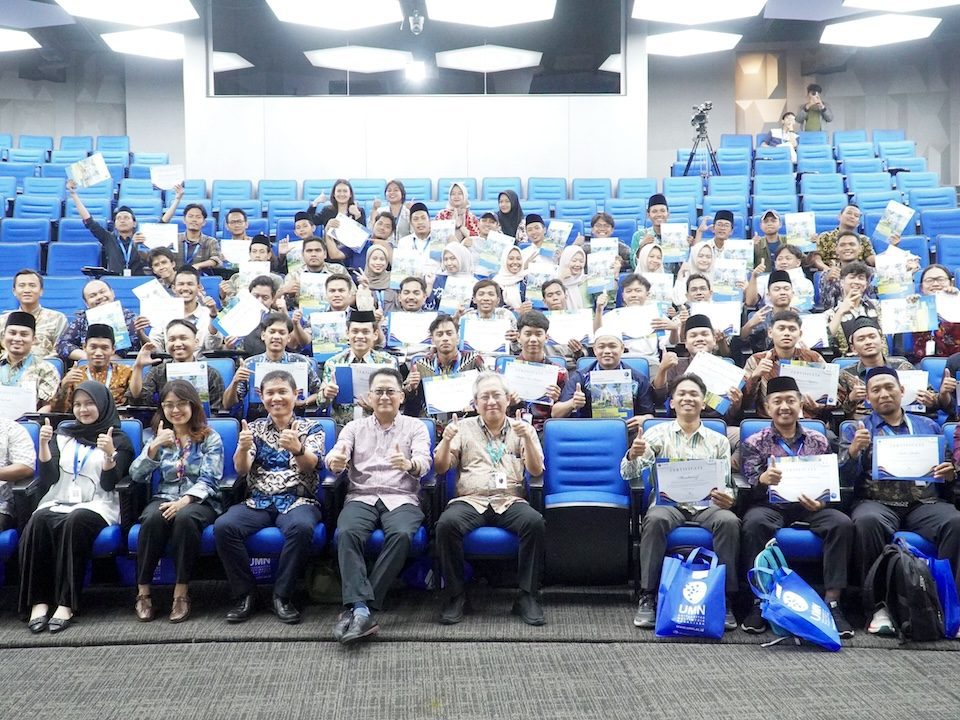
Gaining Global Recognition, UMN Achieves World Ranking 801–1000 in The 2025 Times Higher Education Impact Rankings
July 15, 2025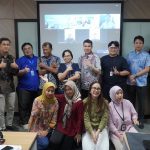
FTI Expert Talk: Implementation of AI in the HealthTech and Environment Industries
July 15, 2025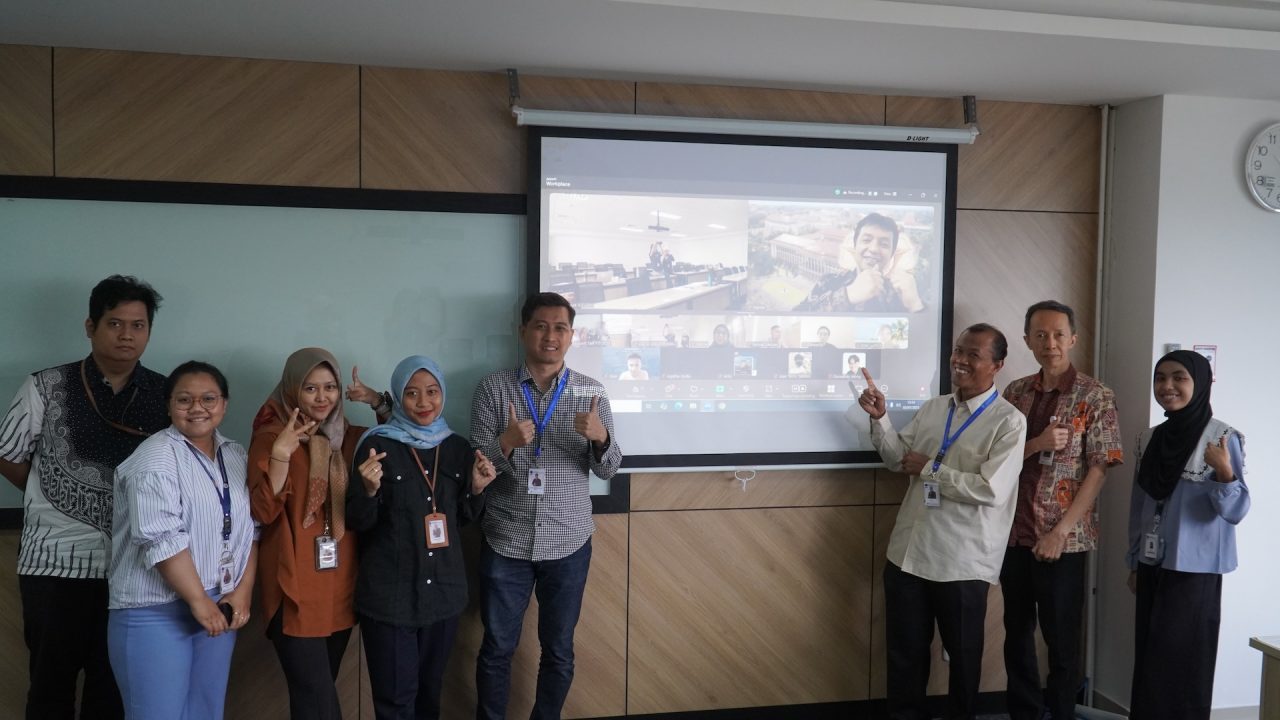
Group photo of the Faculty of Engineering and Informatics and Dr. Suputa. (Doc. UMN)
Tangerang – The Faculty of Engineering and Informatics at UMN held the second day of its Expert Talk on Thursday, July 3, 2025. The second day of the Expert Talk focused on the topic of “Implementation of Internet of Things (IoT) and Artificial Intelligence (AI) in Agriculture.” The Expert Talk was led by Dr. Suputa, Head of the Master’s Program in Pest Science at the Faculty of Agriculture, Gadjah Mada University.
Various fields are now extensively utilizing technology, and as technology advances, so do the fields that rely on it. Previously, the Expert Talk organized by the Faculty of Engineering and Informatics at UMN discussed the implementation of AI in the fields of HealthTech and Environment. This time, the focus was on the field of Agriculture.
“Currently, global agriculture is facing various challenges such as pest outbreaks, labor shortages, and unpredictable weather. Various factors contribute to this, but the use of AI and IoT significantly aids the agricultural sector in collecting timely and synergistic data,” Suputa said.
Suputa also noted that the application of AI in agriculture assists in pest management, enabling the diagnosis of pest types and predictions, identifying inconsistent pest patterns, and addressing unstable pesticide use without clear data references.
“The use of IoT and AI can provide effective solutions, allowing us to regulate pesticide use appropriately, neither excessive nor insufficient. In my opinion, integrating technology can lead to a more sustainable environment. Why is it sustainable? Because it creates smart farming and there is no environmental pollution. Therefore, IoT and AI strongly support sustainable agriculture—there is no pest extermination, but rather management to ensure the environment remains sustainable,” Suputa added.
Suputa also shared his experience in using AI sensors in agriculture. AI can detect pests on plants and calculate their numbers. However, it is necessary to study the pests and their distribution; sensors cannot be installed arbitrarily.
“It is very possible for UMN to collaborate with us, as the field of agriculture is not limited to agriculture alone. UGM is very open to collaboration which will be greatly needed and helpful in the future. Students and the faculty can participate in the cooperation,” Suputa added.
By Rachel Tiffany | UMN News Service
English translation by Levina Chrestella Theodora
Kuliah di Jakarta untuk jurusan program studi Informatika| Sistem Informasi | Teknik Komputer | Teknik Elektro | Teknik Fisika | Akuntansi | Manajemen| Komunikasi Strategis | Jurnalistik | Desain Komunikasi Visual | Film dan Animasi | Arsitektur | D3 Perhotelan , di Universitas Multimedia Nusantara.

